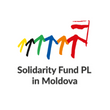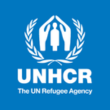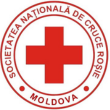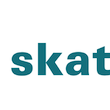Organizații vizate:
Anunțuri de Angajare
- Detalii
- Categorie: Angajări
Tdh Moldova announces a competition for the selection of an evaluator for the final evaluation of the MYCS project
Informațiile prezentate în articolul de mai jos pot să nu mai fie actuale sau să nu mai reflecte activitățile și programele curente. Anunțul este păstrat în arhivă pentru a asigura transparența și accesul public la informațiile despre inițiativele și proiectele implementate anterior.
TERMS OF REFERENCE FOR FINAL EVALUATION
Project title: Moldova Youth Civil Society: a call for stronger and inclusive youth participation (MYCS)
Reference number: ENI/2021/171210-3/3
Project duration: February 2022 – January 2025
Funded by: European Union
Lead implementing organization: Terre des hommes (Tdh) Moldova
Project implementing partners: Centre Partnership for Development (CPD); Civil Society Development Foundation (FDSC) Romania.
1. Background and context
Project overview
The MYCS project was initiated to address the growing need for empowering youth civil society organizations (CSOs) and informal groups in Moldova, aiming to improve youth participation in democratic processes, service delivery, and community mobilization. Moldova’s youth sector, particularly in rural and disadvantaged areas, faces systemic challenges, including limited access to civic participation programs, youth-friendly services, and insufficient representation in policy-making processes.
The MYCS project, implemented by Terre des hommes Moldova in partnership with the Centre Partnership for Development (CPD) and the Civil Society Development Foundation (FDSC) from Romania, aims to empower youth CSOs and informal youth groups by providing them with financial support, capacity building, advocacy tools, and networking opportunities. The overarching goal of the project is to foster an inclusive and sustainable environment for youth participation in local governance and civic life, in alignment with Moldova’s youth sector strategies and the EU’s strategic objectives for the region.
The project provides direct financial support through a sub-granting scheme to at least 13 youth CSOs and 20 local informal youth groups, amounting to 60% of the project’s total budget.
The project focuses on:
- Empowering youth CSOs to identify community needs and design inclusive, resilient, and high-quality services and programs for young people.
- Supporting youth CSOs and informal groups in delivering services, advocating for lasting youth participation, and mobilizing communities.
- Creating an enabling environment for improved participation, collaboration, and learning between youth CSOs, local authorities, and young people.
Project partners:
Terre des hommes Moldova (Tdh Moldova): The lead organization, active in Moldova since 2004, focuses on ensuring children’s protection, development, and participation in social and educational processes. Part of Terre des hommes, the largest Swiss child protection organization, Tdh Moldova empowers children and youth, advocating for justice, supporting those affected by migration, and preventing violence.
Centre Partnership for Development (CPD): A Moldova-based organization with a strong focus on promoting gender equality, policy advocacy, and inclusive development. CPD supports the growth of CSOs and informal groups by offering strategic guidance, ensuring that gender and social inclusion are integral to all project interventions. The organization is a key actor in advancing equal opportunities for women and men and empowering marginalized groups through its policy initiatives and programs.
Civil Society Development Foundation (FDSC) Romania: A leading organization in Romania with over two decades of experience in civil society development, FDSC is known for its expertise in sub-granting and capacity building for CSOs. FDSC has extensive expertise in facilitating strategic partnerships between civil society and public institutions, as well as fostering a culture of active citizenship and transparency. By supporting CSOs, FDSC brings valuable insights into civic engagement, organizational development, helping local organizations build resilience, enhance their management practices, and contribute to sustainable social change in their communities.
2. Purpose of the external evaluation
The final external evaluation is a mandatory deliverable for the donor European Commission.
The objectives of the evaluation are as follows:
- Assess the overall performance of the MYCS project, particularly in relation to its objectives, outputs, and outcomes.
- Evaluate the relevance, effectiveness, efficiency, impact, and sustainability of the project’s interventions.
- Identify lessons learned and provide recommendations for similar future initiatives.
- Assess the sustainability of the project's results and the likelihood that the CSOs and informal groups will continue to benefit from the project after its completion.
3. Key Evaluation Questions
The evaluation will focus on the following key questions:
Relevance:
- Were the project’s objectives and activities aligned with the needs of the target groups (youth, CSOs, informal groups)?
- How well did the project address the specific needs of youth?
Effectiveness:
- To what extent were the specific objectives achieved?
- What were the main factors influencing the achievement or non-achievement of the objectives?
- How effective was the capacity building and sub-granting scheme in improving the operational capacity of the participating CSOs and informal groups?
Efficiency:
- Were project resources (financial, human, technical) used in the most efficient manner to achieve the objectives?
- Was the timeline for the implementation of activities followed, and how effectively were resources managed?
Impact:
- What tangible impact did the project have on the target groups and beneficiaries (youth, CSOs, informal groups)?
- What changes or improvements can be directly attributed to the project?
Sustainability:
- To what extent are the project results likely to continue after the end of the project?
- How well prepared are the CSOs and informal groups to sustain the outcomes achieved without further external support?
4. Evaluation methodology
The evaluator is expected to propose a detailed methodology that includes a combination of the following:
- Desk review. Analysis of key project documents, including project proposal and logframe, progress reports, activity reports, financial reports, monitoring and evaluation data, sub-granting guidelines and reports from grantees and any relevant communications.
- Interviews and Focus Group Discussions: interviews with key project staff from Tdh Moldova, CPD, and FDSC; discussions with beneficiaries, including youth CSOs, informal youth groups; interviews with relevant stakeholders, including donors and national authorities involved in youth policy.
- Online or paper-based surveys for beneficiaries (youth, CSOs, informal groups) to gather quantitative data on the project’s effectiveness, satisfaction with services/programs, and the perceived impact.
- Direct observation through field visits to project locations, including visits to the supported youth CSOs and informal groups to assess the on-the-ground results and impact.
The proposed methodology should ensure the collection of both qualitative and quantitative data, and that a representative and diverse group of stakeholders is consulted during the evaluation process.
The evaluation methodology should keep in mind the following underlying principles:
- equality and non-discrimination of any individual involved in the data collection and consultation process;
- participation and inclusion of different diversity groups and child participation to the extent possible, while ensuring that participation and inclusion does not cause any harm or distress to the individual;
- transparency and accountability throughout the research and assessment process towards all organizations and individuals involved;
- confidentiality must be preserved, and names and personally identifiable information should not be collected or, if they are necessary, they should be duly coded and encrypted;
- informed consent and assent: should be sought from all participants, including providing them with information on the objective of the research and how data will be used as well as ensuring the opportunity to ask and confirm questions before agreeing to participate.
- child safety: whenever children are involved, the researcher(s) and anyone affiliated with the research (assistants, translators) must sign the Tdh Child Safeguarding Policy and Code of Conduct and adhere to its principles.
5. Deliverables
The external evaluator will be responsible for producing the following deliverables:
- An inception report outlining the proposed methodology, work plan, and timeline for the evaluation. The report should also include a timeline for the evaluation and be submitted within two weeks of the contract’s start date. This will be reviewed and approved by Tdh before moving forward.
- A draft report that includes an analysis of the evaluation questions, key findings, lessons learned, and actionable recommendations. The draft report should be submitted for review and feedback from Tdh and partners.
- After incorporating feedback from the draft report, the final evaluation report will be submitted. This should include: an executive summary; a detailed assessment of the project’s relevance, effectiveness, efficiency, impact, and sustainability; recommendations for future projects, focusing on youth sector support and annexes (including a list of documents reviewed, interview lists, and data collection tools).
- A final presentation to the project’s stakeholders, summarizing the evaluation results and recommendations.
6. Timeline
The evaluation is expected to take place over a period of approximately 3 months. Below is the tentative timeline:
|
1. |
Launch of the evaluation |
October 2024 |
|
2. |
Inception report submission |
2 weeks after the start of the contract |
|
3. |
Data collection period |
November - December 2024 |
|
4. |
Preliminary findings presentation |
Early December 2024 |
|
5. |
Draft evaluation report |
Mid-December 2024 |
|
6. |
Final evaluation report |
January 2025 |
|
7. |
Final presentation |
January 2025 |
7. Profile of the evaluator: qualifications and experience
The evaluator should possess the following qualifications:
- Proven experience in conducting external evaluations for EU-funded projects or other international donor-funded projects.
- Strong knowledge of the youth sector, civil society development, and sub-granting mechanisms.
- Familiarity with the socio-economic and political context in Moldova, including challenges facing youth and local organizations.
- Demonstrated expertise in qualitative and quantitative data collection and analysis.
- Strong analytical, writing, and communication skills.
- Fluency in Romanian and Russian; full written proficiency in English for production of quality reports.
8. Budget/payment terms
The proposed budget for the evaluation will be provided by the consultant in the Financial Offer. Upon the review of the Financial and Technical Offers, Tdh Moldova may choose to negotiate the final price in light of the Financial Offer and Tdh’s available budget. Tdh may also consider the combination of the quality and competitiveness of the Technical and Financial offers. Half of the payment will be made at the beginning of the evaluation, with the other half being paid after its conclusion.
9. Application procedures
Interested evaluators are invited to submit their proposals, which should include:
- Technical Offer, including (i) expression of interest; (ii) methodology and tools proposed, showing understanding of the objective of the study and the Terms of Reference (ToR); (iii) a proposed timeline and work plan.
- Financial Offer – with a detailed line-item budget, indicating costs in EUR. The indicated prices should be 1) NET amounts to be received by the consultant plus 2) all local taxes.
- Up-to-date CV of the evaluator, highlighting relevant experience.
- Example of previous work carried out (if any, unless confidential or if it can be anonymized).
- Contact details of two references from previous evaluation assignments.
Applications – including all annexes – must be in English.
Submission deadline:
Proposals should be submitted by October 21, 2024 (23:59) to mda.office@tdh.org. Please include “MYCS: external evaluation, Name, Surname”, in the subject line of the application email.
The assessment of applications will continue until October 28, 2024. During the review process, Tdh Moldova may request clarifications and verify the references provided.
10. Profile of the evaluator: qualifications and experience
|
Contract awarding criteria: |
No. of points |
|
Technical Offer – best approach: The Technical Offer will contain: Methodology and tools proposed, showing understanding of the objective of the study and the Terms of Reference; A chronogram showing details for the realization of each of the research phases. The best Technical Offer will be granted with 50 points out of the total score of 100. |
50 points |
|
Financial Offer – demonstrating congruence with the technical approach submitted: The Financial Offer with will be granted with 25 points out of the total score of 100. Prices will be expressed in Euro and should be inclusive of all expenses, charges, taxes incurred by the Contractor in fulfilment of its obligations. Additional costs for logistics, transportation, accommodation, per diem etc. will not be covered separately by Tdh. |
25 points |
|
CV and expertise corresponding to the required criteria |
25 points |
|
TOTAL |
100 points |
The points thus received will indicate the hierarchy of the bidders and the one that will be contracted. The Technical Offer will be evaluated by a Commission of at least 3 representative staff from Tdh Moldova, CPD and FDSC. All bidders will be informed by email over the results of the selection.









